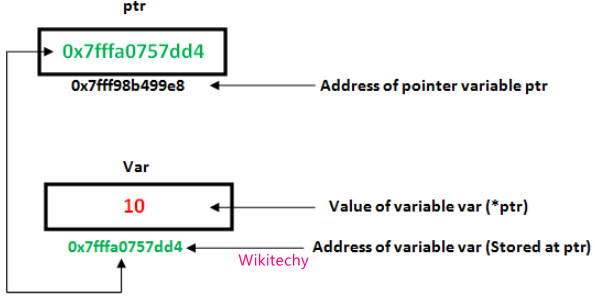- For storing the address of another variable pointers can be used.
- Variables of type int,char, array, function or any other pointer can be of type pointer.
- Architecture of a pointer determines the size of the pointer.
- Size of the pointer depends on the architecture.
- In 32 bit the size of the pointer is 2 byte.
- Using pointer some of programming tasks in C can be easily done.
Declaring a pointer
The pointer in c language can be declared using * (asterisk symbol). It is also known as indirection pointer used to dereference a pointer.
Pointer Example:
An example of using pointers to print the address and value is given below.

Pointer to array
Pointer to a function
Pointer to Structure

Advantages of Pointer
- Pointer reduces the code and improves the performance.
- It is used to retrieving strings, trees, etc., and used with arrays, structures, and functions.
- We can return multiple values from a function using the pointer.
- It makes you able to access any memory location in the computer’s memory.
Usage of pointer
There are many applications of pointers in c language.
Dynamic memory allocation
- In C language, we can dynamically allocate memory using malloc() and calloc() functions where the pointer is used.
Arrays, Functions, and Structures
- Pointers in c language are widely used in arrays, functions, and structures.
- It reduces the code and improves the performance.
